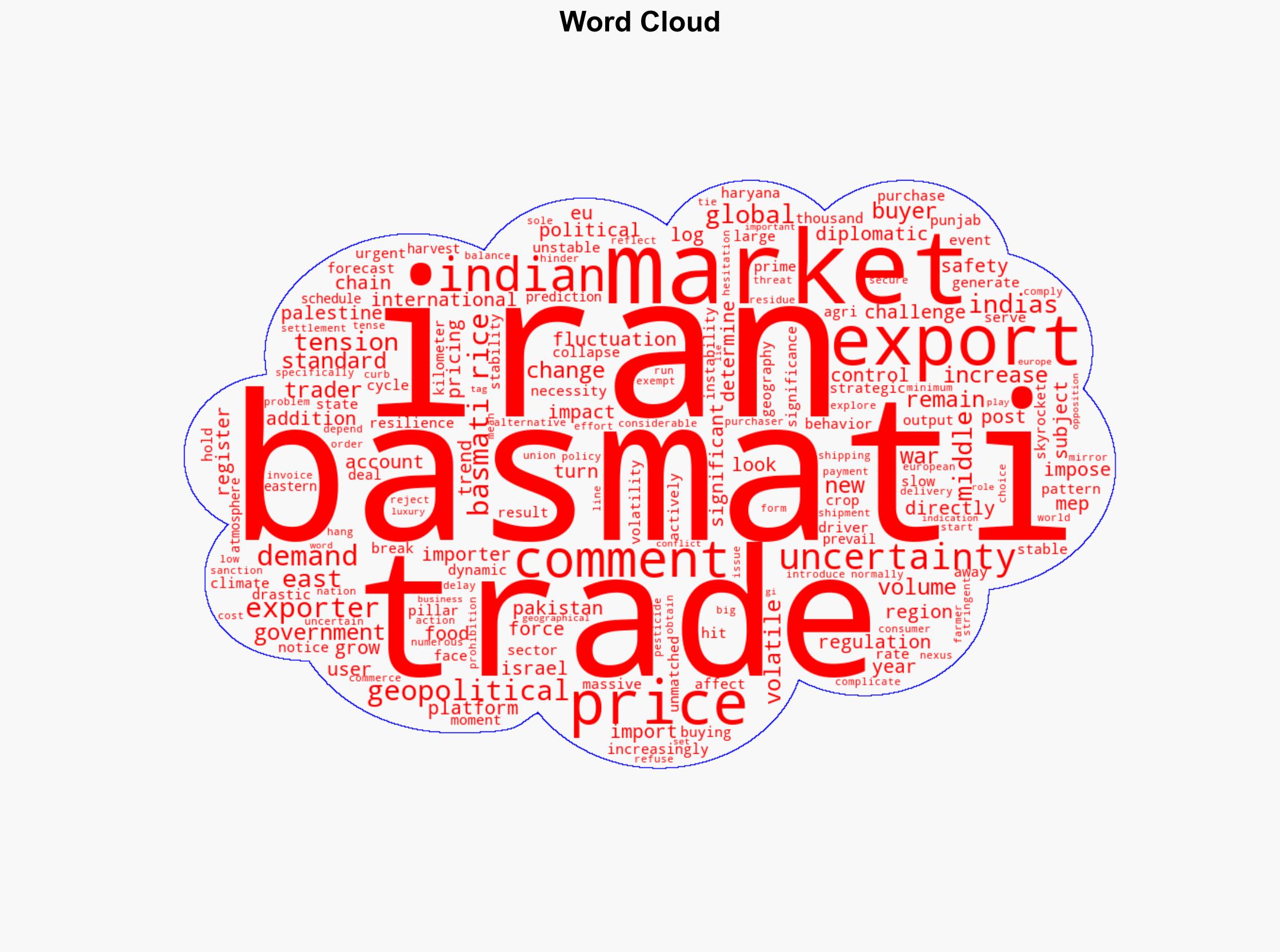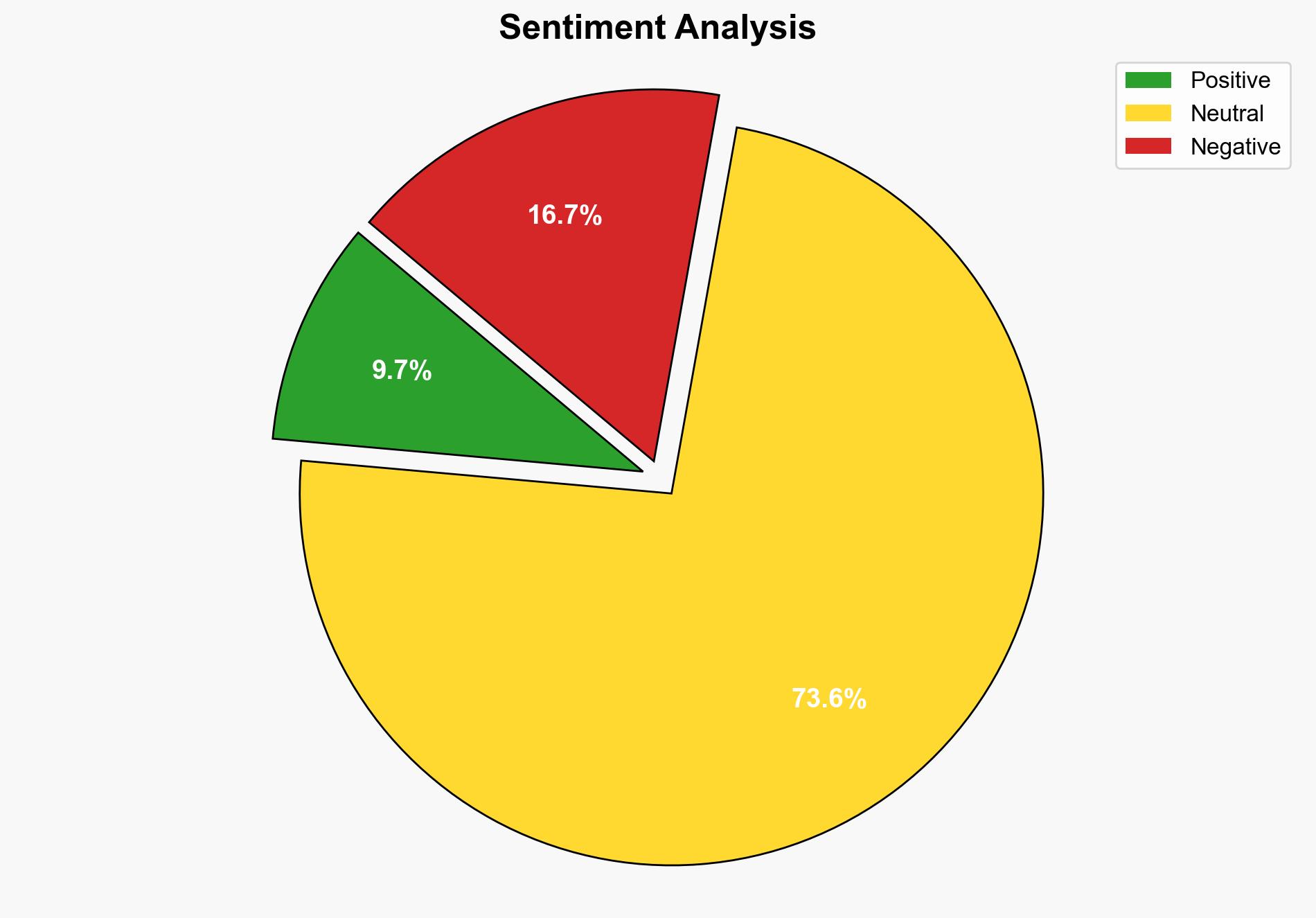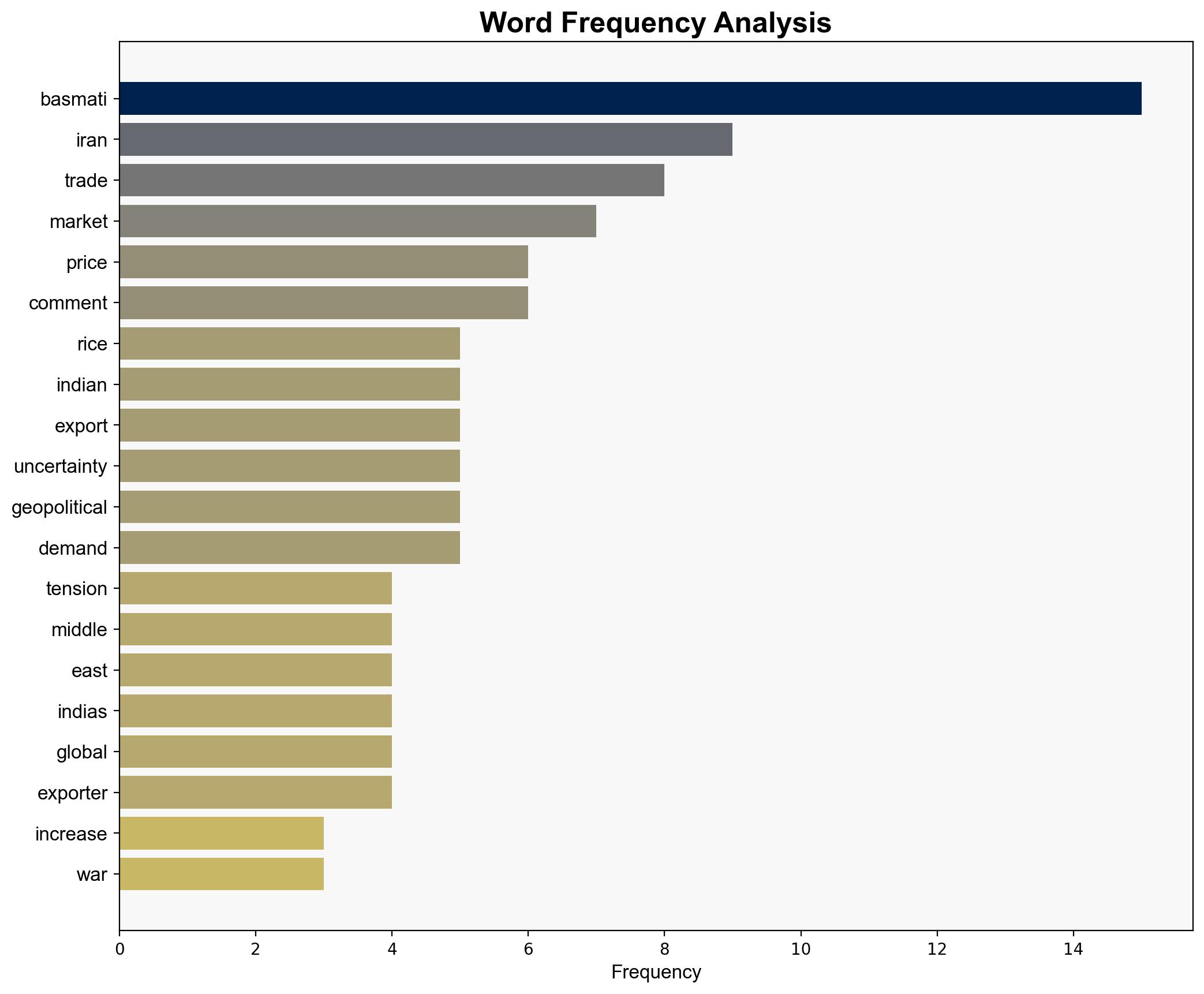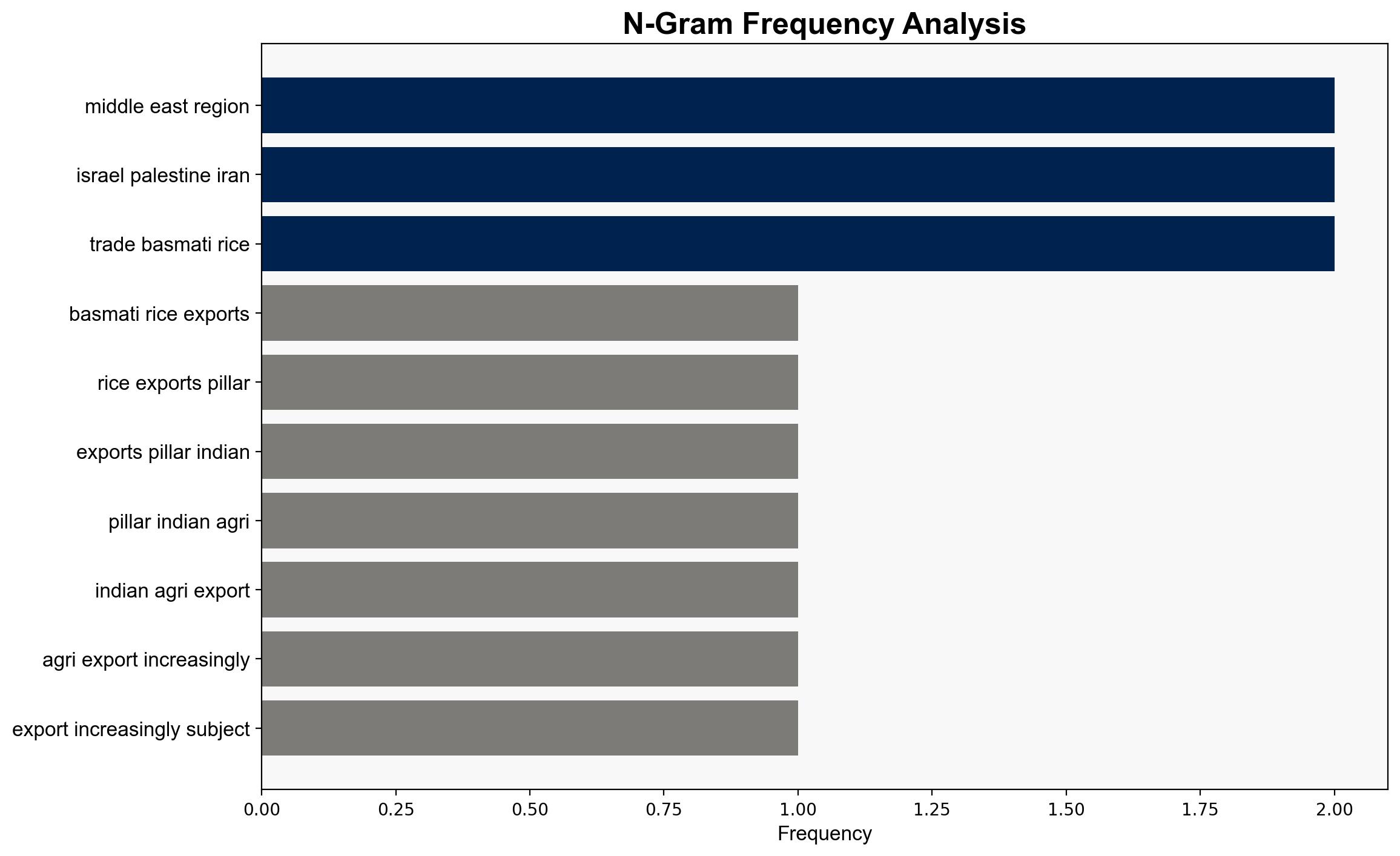How global geopolitical conflicts are reshaping the Basmati rice trade – BusinessLine
Published on: 2025-07-05
Intelligence Report: How global geopolitical conflicts are reshaping the Basmati rice trade – BusinessLine
1. BLUF (Bottom Line Up Front)
Geopolitical tensions, particularly in the Middle East, are significantly impacting the Basmati rice trade. Iran’s role as a major importer is crucial, with its political stability directly affecting global demand and pricing. Indian exporters face challenges from both geopolitical uncertainties and domestic policy decisions, necessitating strategic resilience and diversification to mitigate risks.
2. Detailed Analysis
The following structured analytic techniques have been applied to ensure methodological consistency:
Causal Layered Analysis (CLA)
Surface Events: Fluctuations in Basmati rice trade volumes due to Middle Eastern tensions.
Systemic Structures: Trade regulations, export policies, and geopolitical alliances.
Worldviews: Perceptions of Basmati rice as a luxury commodity influenced by regional stability.
Myths: The belief in the invulnerability of traditional markets like Iran.
Cross-Impact Simulation
Increased tensions between Iran and neighboring countries can lead to disrupted trade routes, affecting supply chains and pricing.
Scenario Generation
Best Case: Stabilization of Middle Eastern tensions, leading to consistent demand and pricing.
Worst Case: Escalation of conflicts, resulting in trade embargoes and market collapse.
Most Likely: Continued volatility with sporadic disruptions in trade.
Narrative Pattern Analysis
The narrative of Basmati rice as a staple in Middle Eastern cuisine is being challenged by geopolitical instability, affecting consumer confidence and demand.
3. Implications and Strategic Risks
The Basmati rice trade is vulnerable to geopolitical shifts, with potential economic repercussions for exporters. The reliance on Iran as a primary market creates systemic risks, exacerbated by political tensions. Additionally, compliance with international standards poses challenges, particularly in the European Union.
4. Recommendations and Outlook
- Encourage diversification of export markets to reduce dependency on volatile regions.
- Enhance compliance with international standards to maintain access to European markets.
- Invest in digital trade platforms to streamline transactions and reduce reliance on traditional trade routes.
- Scenario-based Projections:
- Best Case: Strengthen diplomatic ties to stabilize trade relations.
- Worst Case: Develop contingency plans for market disruptions.
- Most Likely: Focus on adaptive strategies to navigate ongoing volatility.
5. Key Individuals and Entities
No specific individuals are mentioned in the source text. Key entities include Indian exporters, Iranian importers, and regulatory bodies in the European Union.
6. Thematic Tags
national security threats, geopolitical tensions, trade diversification, Middle East stability, export compliance





